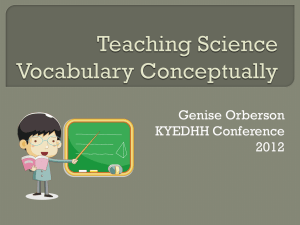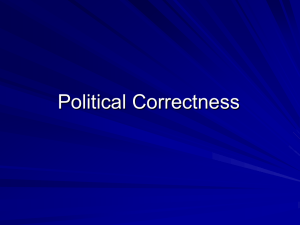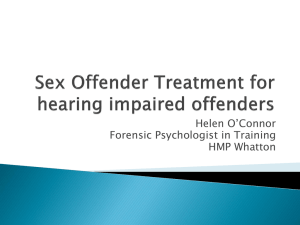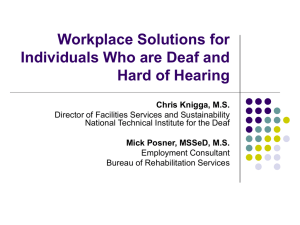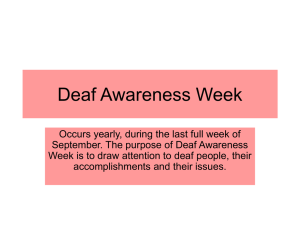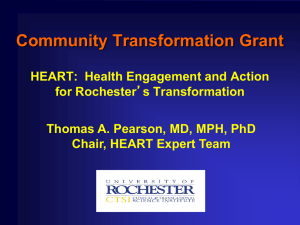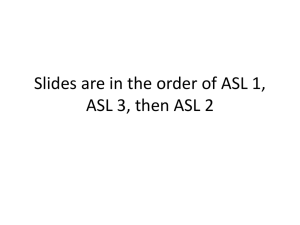Learning and Participation Experiences of Deaf Students D
advertisement
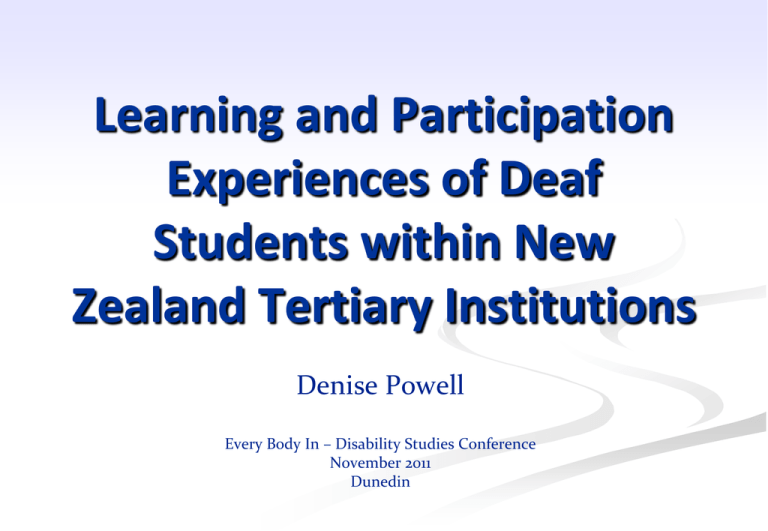
Learning and Participation Experiences of Deaf Students within New Zealand Tertiary Institutions Denise Powell Every Body In – Disability Studies Conference November 2011 Dunedin “Probably no area in the life of deaf people has changed as radically as education” (Ozlins & Bridge 1999, p.51) Some Basic Observations In NZ 95% D/deaf students are mainstreamed for their compulsory education Students expect to access tertiary education in the same way as their hearing peers Research Questions What are the current experiences of D/deaf students in New Zealand? What do these students perceive as barriers? What possible solutions are there to those barriers? Mixed methods study Phase One: Written survey with a sample of D/deaf students 64 students responded giving the study a 73% return rate Phase Two: Interviews with eight questionnaire respondents Respondents by Age Respondents by Institution Supports accessed Not at all useful Interpreters Disability coordinator Manual notetaking / peer notetaking support Laptop computer notetaking FM aids Induction loop Video conferencing Blackboard – online access to lecture content A little useful Somewhat useful Very useful Extremely useful Didn’t use 1 0 1 4 10 48 13 7 5 10 19 10 3 2 6 5 25 23 0 1 2 4 6 51 1 4 3 2 3 51 2 0 0 1 2 59 4 1 0 1 2 56 4 6 3 10 19 21 Students’ Perceived Barriers to Learning Lectures 69% Receiving instructions or supervision 61% Tutorials 60% Students’ Perceived Social Barriers Social functions 75% Casual interactions with other students 58% Highlights Meeting other deaf students Achieving what I set out to do GRADUATING!! Proving that deaf people can study successfully Getting good grades Gaining recognition for all my hard work Important Factors Identified Early language and educational experiences, Transition to tertiary study, Access to support services and assistive technology, and Interactions with others. Students’ Solutions Being able to self-identify support needs confidently and knowledgably Knowing how to utilise the services of notetakers, interpreters, and other support staff successfully Good self-advocacy skills The capacity to believe in their own abilities. Funding for better access to appropriate supports for both academic and social needs in order to address social isolation and limited communication access Identify and address gaps in learning/knowledge both at entry to, and throughout D/deaf students’ tertiary study. Where are we now? We do know that more D/deaf students are reaching this level We do not know how many complete their studies We do not know whether tertiary education ‘makes a difference’ Identified Issues and Recommendations Database needed Transition planning needs to be urgently addressed – regional workshops Role of transition advisor/tertiary advisor/ mentor for deaf students Improve tertiary staff awareness and skills Specialised training needed for notetakers/educational interpreters Encourage the use of NZSL on campus Formal mentoring system MOE discontinues specialised support at the tertiary level, but D/deaf students’ education is continuing Role of mentor/advisor at a national or regional level could assist Capture valuable data about effectiveness Track needs of D/deaf students Conclusion Inclusion is a philosophical concept based on community membership, and is a value system, not a place, or a particular set of learning circumstances (Powers, 2000) Thanks Firstly my thanks to Prof Merv Hyde and Dr Renée Punch for sharing their time, knowledge and experience so generously. Secondly, to those D/deaf graduate students and disability support services who provided ideas and suggestions to ensure this research was both relevant and beneficial. Finally, and most importantly, thanks to the D/deaf students who willingly gave their time and energy to take part in this research. Over to you…… Feedback Questions? Comments?
